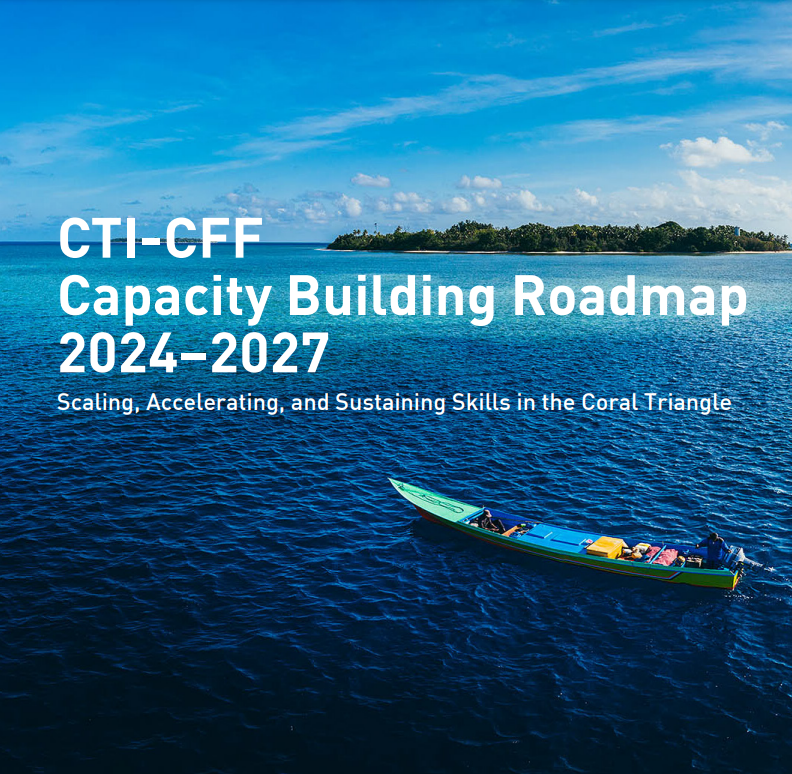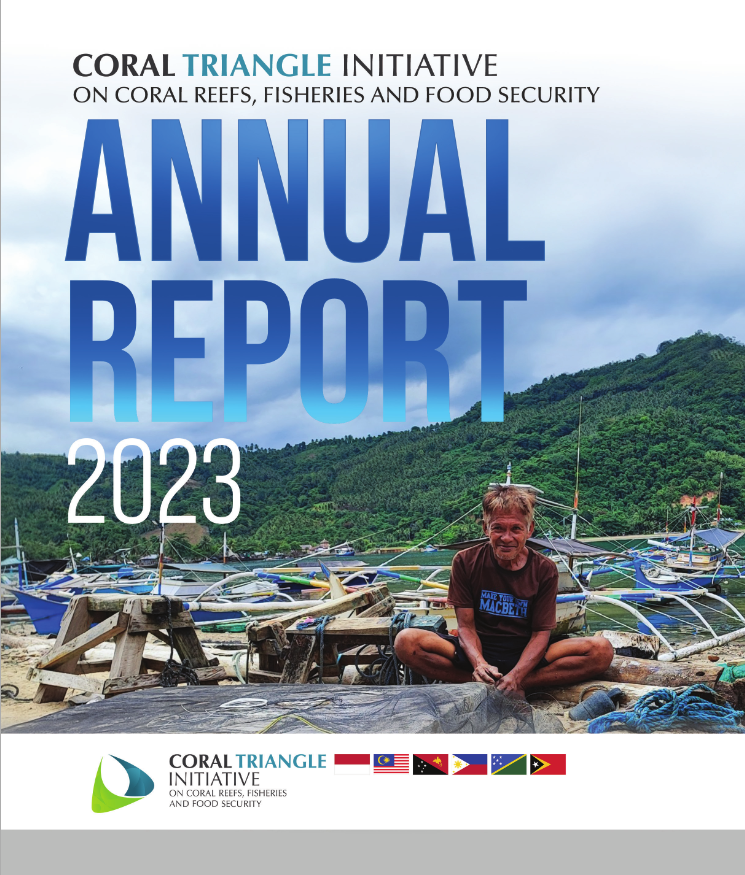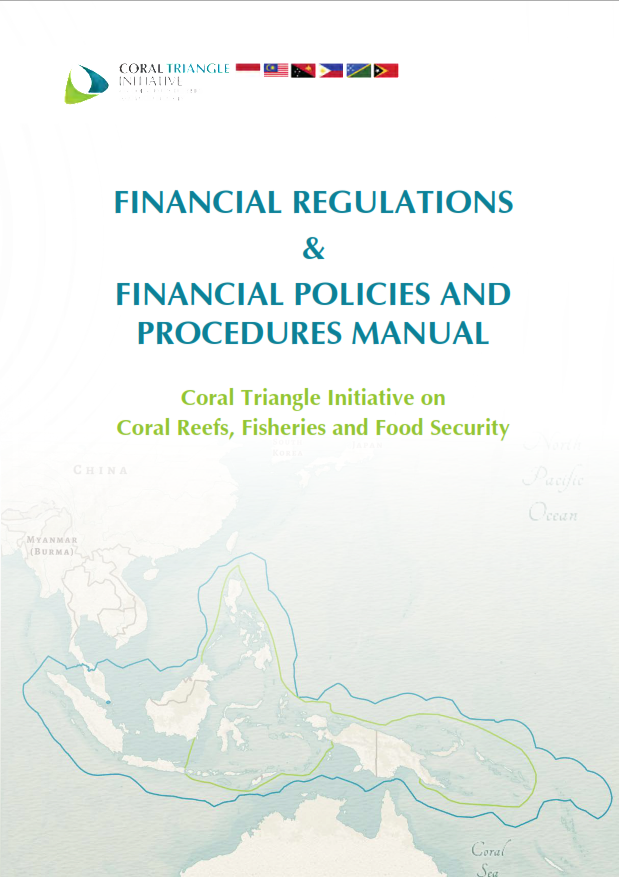2024 CTI-CFF Seascapes Regional Exchange: Uniting Forces for Marine Conservation in the Coral Triangle
2024 CTI-CFF Seascapes Regional Exchange: Uniting Forces for Marine Conservation in the Coral Triangle
The 2024 CTI-CFF Sulu-Sulawesi Seascape and Bismarck-Solomon Sea Seascape Technical Regional Exchange was an event that brought together passionate experts, partners, and country representatives in Kuala Lumpur from August 12-14, 2024. This dynamic gathering, organized by the Coral Triangle Initiative on Coral Reefs, Fisheries, and Food Security (CTI-CFF) with the support of USAID Sustainable Fish Asia Technical Support (SuFiA TS), provided a crucial platform for sharing knowledge, strengthening partnerships, and tackling some of the most pressing marine conservation challenges in the region.
The exchange kicked off with inspiring opening remarks from Dr. Tan Beng Hoe, Malaysia's representative from the National Coordinating Committee (NCC), who warmly welcomed participants and reaffirmed Malaysia's unwavering commitment to advancing marine conservation within the Coral Triangle. Dr. Frank Keith Griffin, CTI-CFF's Executive Director, delivered an impactful keynote address, emphasizing the power of collaboration and the need for collective action to address the complex challenges facing the Sulu-Sulawesi Seascape (SSS) and the Bismarck-Solomon Sea Seascape (BSS).
Key voices continued to set the tone for the exchange, with Mr. Aisi Anas, Chair of the Ecosystem Approach to Fisheries Management (EAFM) Working Group, underscoring the urgency of unified efforts to combat overfishing and habitat degradation. Dr. Jan Steffen, Programme Director from GIZ, highlighted the vital role of partnerships in achieving sustainable development goals, while Dr. Arlene Satapornvanit from USAID SuFiA TS emphasized the importance of supporting national plans of action (NPOAs) through regional collaboration.
The first session delved into the Regional Plan of Action (RPOA) 2.0, with Mr. Christovel Rotinsulu, Deputy Executive Director for Program Services at CTI-CFF, leading discussions on aligning national and regional plans, supporting NPOA development, and prioritizing regional activities. Using the innovative Miro platform, participants connected their national priorities to the seven targets and 17 regional activities of RPOA 2.0. A detailed presentation by Ms. Cristel Amarillo revealed the gaps in achieving key indicators, sparking discussions on how to improve the effectiveness of conservation efforts.
In a session led by Dr. Frank Keith Griffin, the focus shifted to restructuring the CTI-CFF Regional Secretariat to enhance its efficiency and effectiveness. This critical step aims to optimize the Secretariat's role in supporting the CT6 Member Countries and improving the coordination of conservation initiatives across the region.
The exchange then explored the COASTFISH Regional Framework, with Dr. Norasma Dacho providing a comprehensive overview of its development journey from 2017 to 2023. Participants engaged in lively discussions on advancing the framework's objectives, with a focus on integrating it with the CT Atlas platform.
Expert insights on EAFM planning and capacity building were shared by Ms. Tanyalak Suasi from SEAFDEC and Dr. Len Garces, a member of the Regional Expert Technical Team (RETT) from USAID SuFiA TS. Their presentations on lessons learned and EAFM planning in the Sulu-Sulawesi Seascape sparked fruitful discussions on the challenges and achievements of implementing national plans of action.
The session on country updates facilitated discussions on the achievements and challenges faced by each country in implementing their national plans of action. Participants were then divided into two breakout groups, focusing on the Sulu-Sulawesi Seascape and the Bismarck-Solomon Sea Seascape, respectively. The discussions revolved around implementing EAFM and identifying strategies to address the challenges facing these seascapes.
The following session took a deep dive into fisheries management, with presentations covering the impact of climate change, technological innovations, responsible seafood sourcing, and private sector engagement. The final day was dedicated to capacity-building workshops designed to equip participants with the knowledge and skills needed to manage climate risks in fisheries and address the pressing issue of IUU (Illegal, Unreported, and Unregulated) fishing.
The final day of the exchange was dedicated to capacity-building workshops designed to enhance participants' knowledge and skills in climate-responsive fisheries. Topics presented include Climate Risk Management Planning by Ms. Margot Stiles and Coral Fellows focusing on developing strategies for managing climate risks in fisheries, and Maritime Domain Awareness/IUU Reporting Tool and Technology in Support of Fisheries Management: Presented by Mr. Vincent Nguyen and Mr. Joey Pedrajas. Another group discussion was organized as a Focus Group Discussion for Threatened Species facilitated by WWF, as a preliminary discussion towards the development of a Threatened Species Regional Conservation Plan.
As the exchange drew to a close, participants reflected on the invaluable insights gained and the strengthened partnerships forged over the three days. The closing ceremonies featured heartfelt remarks from representatives of USAID SuFiA TS, the Chair of EAFM TWG, and the CTI-CFF Regional Secretariat, leaving everyone inspired and ready to tackle the challenges ahead with renewed energy and determination.



